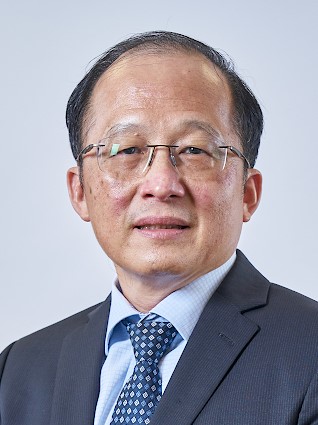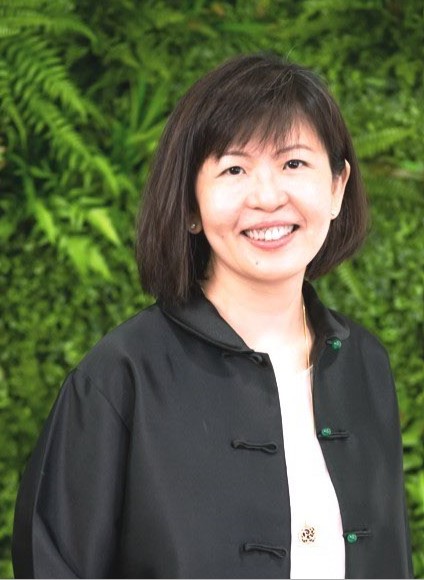Introduction
The SkillsFuture Career Transition Programme (SCTP) supports mid-career individuals in acquiring industry-relevant skills to improve employability and pivot to new sectors or job roles.
This SCTP is a forward-looking course that delves into
the pivotal role of sustainability in the development and evolution of smart buildings and smart cities. As urbanisation continues to accelerate, the course emphasizes the urgent need for environmentally conscious, resource-efficient, and socially
responsible urban solutions. Learners will explore the integration of sustainable practices, cutting-edge technologies, and innovative urban planning to create smart buildings and cities that foster well-being, resilience, and a greener future.
There are six thematical modules and one industry and company induction cum capstone project. Learners will attend the modular training courses, gain actual industry experience through green company visits, and receive career support
facilitation.
Course Availability
-
Date(s): 26 Feb 2024 to 18 Oct 2024
Time: 7:00PM to 10:00PM
Venue: Virtual (Online), NTU e-Learning Platform & NTU@one-north campus
Registration is closed.
This is a 6-month course designed by experienced industrial practitioners to support mid-career individuals in attaining industry-relevant skills to boost their employability and pivot to new roles in the Built Environment sector.
- Focus on sustainability impact that will shape the future of livability within cities as we urbanise
- Be better equipped to contribute to sustainable urban development, shape smart cities, and advocate for environmentally responsible policies and practices in the built environment sector
- Analyse energy management strategies to optimise energy consumption in buildings and cities
- Identify concerns about environmental assets, social impact and communication across the supply chain management
- Introduction to sustainable finance, green bonds and ways navigate investment strategies on asset developments
- Access to extensive networking opportunities and interactions in the sustainability sector
- Employment facilitation services and career advisory to enhance participant's employment prospects so that they can join the Built Environment sector
|
Module Title |
Synopsis |
|
Driving Sustainability in Building a Smart City |
The concept of sustainability and ESG (Environmental, Social and Governance) is becoming increasingly important in the development of smart cities and the built environment. The pressure is mounting to address climate crisis and more stakeholders are expecting that companies and cities make sustainable development a priority. In the quest to create more livable, efficient, and environmentally friendly urban environments, the concept of a ""Smart City"" has emerged as a promising solution. A Smart City utilises cutting-edge technology and data-driven approaches to improve the quality of life for its residents while minimizing its environmental footprint. This module aims to explore the integration of sustainable practices and innovation within the framework of building a Smart City. There will be case studies, break-out sessions and group presentations to enhance the understanding amongst learners and enable active engagement towards critical thinking, building teamwork and application of learnt subjects on specific problem statements at work place. |
|
Sustainable Smart City & Singapore Green Plan 2030 for the Built Environment |
Rapid urbanisation and population growth warrants development of new built buildings as well as cities to cater for the future across the globe. Such developments need to be aligned with sustainable standards to ensure protection of environmental degradation as well as embracing social inclusivity. This module will outline in depth the strategies, policies, programs around smart building and city development in Singapore to ensure long term sustainability is well taken care as growth unfolds. Participants will learn about Singapore’s 2030 Green Plan that is aligned with commitment to Paris Agreement to keep the global ambient temperature rise below 1.5 Deg C. They will also learn in detail about BCA’s Green Mark Masterplan that aims to drive built environment decarbonization towards nation’s net zero strategies. The module will include best practices and also highlight the progress being made across the built environment. This will be addressed through case studies, project examples and group work assignment. |
|
Applications in Smart Building, Smart City & Energy Management |
Smart cities represent a great advance in terms of sustainability, energy efficiency, and being able to respond to the needs of enterprises, institutions, and inhabitants. In this sense, smart grids contribute to the development of smart cities in the field of electrical energy, including concepts such as renewable energies, distributed generation, energy efficiency, and smart homes and automation. In order to be able to implement all the functionalities of smart grids, it is necessary to have real-time information on the different installations. In this sense, IoT plays a fundamental role in developing smart grids. This module will explore application of various technologies and solutions that can be adopted in built environment, as well as cities development to ensure environmental and social sustainability is core to such developments while enhancing economic growth. |
|
Mapping Climate, Carbon, and Environmental Systems in Smart Building Management |
Many global organisations have been driving down their carbon emissions, reducing their impact on the environment while boosting efficiency and unlocking reputational benefits and reducing risk. Now, many are setting their sights on bringing their emissions down to net-zero. Wherever your organisation is on its carbon reduction journey, having a strategic route-map is crucial. Greenhouse gas accounting is a framework of methods to measure and track how much greenhouse gas (GHG) an organisation emits. It can also be used to track projects or actions to reduce emissions in sectors such as buildings, cities, forestry, or renewable energy. As the pressure is mounting to address climate crisis and more stakeholders are expecting that companies and cities make sustainable development a priority, the key aspect is to actively strategize their environmental targets around greenhouse gas emissions reduction and aligning to national decarbonization goals towards net zero carbon footprint. |
|
Business Models with Circularity and Sustainable Supply Chains in Smart City Management |
The built environment sector is a major consumer of natural resources. It recognises the need to fundamentally evolve the processes, components and systems it utilises to obviate waste and increase efficiency. There is an incredible breadth of opportunity that this will create across the entire supply chain. In the industry, ESG considerations often focus on the environmental impact of buildings and other infrastructure. This includes energy efficiency, water conservation, waste management, using sustainable materials in construction, enabling supply chain sustainability and reducing total cycle carbon. ESG alignment and adoption will be crucial as it will help businesses identify their risks, learns ways to mitigate through the regulatory requirements and comply with local and international frameworks to sustain growth. |
|
Sustainability Governance and Tracking Progress in Smart City Management: ESG Disclosures, Reporting and Communication |
Sustainable development has been integral to the Singapore Story. The nation is young, but it has made much progress on the 17 Sustainable Development Goals (SDGs) and one of it is building and shaping inclusive, liveable, and sustainable urban areas as an essential development priority. With that, data governance will be a key variable in the endeavor to design smart cities in such a way that they effectively contribute to achieving sustainability goals and solving environmental problems. This module delves into the critical aspects of sustainability governance and effective progress tracking in the management of Smart Cities. Smart Cities are the future of urban living, and their development and operation must prioritise sustainability to address pressing environmental, social, and economic challenges. |
|
Industry and Company Induction cum Capstone Project |
This is the seventh module of the SCTP programme, where participants would have completed all six modules: In this final module, it will be more than a simple site visit to green destinations like green city, green building and green energy companies. These workplace journeys are designed to meet specific learning outcomes where they will have green jobs. Participants will take on a capstone project with the assigned company, where they will learn more about the company and its industry, observe the employees at work, and have fruitful discussions with corporate chiefs relating to the company’s challenge statement. To facilitate the comprehension and application of the acquired knowledge, trainers will be present to support the personal and professional growth of the participants by sharing knowledge, expertise, and experiences |
Methodology
This train-and-place programme is available on a part-time format, over four months and it will be conducted through a blended learning mode which includes online, in-person sessions (Saturday only), self-learning and experiential company visits.
To take note: The seventh module, Industry and Company induction cum Capstone Project, will be in January 2024. Learners will be expected to apply leave for two weekdays and the remaining of the course will be conducted via online and every Saturday in the month of January 2024.
Graduate Support & Outcomes
|
Scope |
Features |
|
Curriculum for real-world needs |
Our curriculum is purposefully designed based upon the real-life experiences of our industry seasoned trainers to ensure that the most effective, relevant, and practical knowledge and skill sets are imparted to our trainees. Our tried and tested content give our trainees the best chance of success as they embark on their new careers in digital marketing in the highly competitive business landscape. |
|
Experts guidance and sharing |
During the course of the programme, our trainees will be instructed and mentored by some of the most experienced and successful practitioners in the digital marketing space. Our network of trainers bring with them a wealth of experiences from different business domains, and offers our trainees a wide-ranging perspective of the challenges unique to each of these businesses both locally and abroad, from MNCs to local enterprises and SMEs. |
|
Build up experiences as you learn |
Beyond classroom works, our modules each encompasses a hands-on session to give our trainees the opportunity to apply what they are taught and put their skills to test through project works based of real-life problems. These practical sessions ensure that our trainees are sufficiently exposed to handle the myriad of demands in the real world confidently and proficiently while honing their softer skill sets to be better team players and effective communicators. |
|
Employability assistance for trainees |
Leveraging the wide networks of our seasoned trainers in the digital marketing space, and the strong relationships they built with past customers from MNCs and SMEs, our trainees who are keen to pursue a digital marketing career will be well-positioned to connect with potential employers upon graduation, complete with a Credential portfolio of relevant project works to showcase their proficiency and experience. |
Schedule
Please download programme schedule under "Course Availability".
* NTU reserves the right to change the date, mode/venue of lesson or cancel class due to unforeseen circumstances.
SkillsFuture Career Transition Programme (SCTP) supports mid-career individuals in acquiring industry-relevant skills to improve employability and pivot to new sectors or job roles.
The minimum entry requirements are:
- Polytechnic diploma in Engineering or Building or Environment studies;
- English Language Proficiency: IELTS 5
- Must possess a laptop or desktop
(Applicants are subjected to pre-course assessment and interview before being accepted)
Standard Course Fee: S$19,620.00
|
SSG Funding Support |
Course Fee |
Course fee payable after SSG funding, if eligible under various schemes |
|
BEFORE funding & GST |
AFTER funding & 9% GST (w.e.f. 1 Jan 2024) |
|
|
1 Singapore Citizens (SCs) and Permanent Residents (PRs) (Up to 70% funding) |
S$18,000.00 |
S$5,886.00 |
|
2 SCs aged ≥ 40 years old |
S$2,286.00 |
|
|
3 SCTP Additional Course Fee Funding Support (AFS) (Up to 95% funding) |
S$1,386.00 |
- NTU/NIE alumni may utilise their $1,600 Alumni Course Credits. Click here for more information.

Dr Robert Tiong
Dr Tiong is an Associate Professor in School of Civil & Environmental Engineering, as well as Deputy Director of Centre for Infrastructure Systems at Nanyang Technological University, Singapore. He is the Program Director of the MSc Programme in International Construction Management since its inception in 1991.
Dr Tiong graduated in 1981 from University of Glasgow with First Class Honours in Civil Engineering, with specialisation in management. He obtained his M.Eng on Construction Engineering & Management, from University of California, Berkeley in 1987 and his PhD in 1994 from NTU. His research and consulting interests focus on integrated risk analysis and economics, financing, management, and project procurement for infrastructure projects. More recently, he has focussed on catastrophe risk management, alternative risk transfer and financing for natural hazards and catastrophes such as floods and earthquakes.
He has published extensively including a monograph on “The Structuring of Build-Operate-Transfer (BOT) Projects”, a research report on “Evaluation of risks in BOT projects”, and a book chapter on “Public-Private Partnership for Infrastructure Projects: An Asian Dimension”. He was also a reviewer for the UNIDO Guidelines for the Development, Negotiation, and Contracting of BOT Projects.
He has worked with the Asian Development Bank and the World Bank on risk analysis and management of infrastructure projects. Recently, he has been involved in the study of Clean Energy Development and Carbon Credit Finance for hydro-power projects in developing countries such as Vietnam.

Mr Eric Loh
Eric graduated in NTU as an Electrical and Electronic Engineer 25 years ago and now serves as an NTU alumni. An advocate of smart cities and building digital twin and sustainability solutions, intelligence building green-mark standard and UN SDG goals, Eric collaborated with many companies’ delivering smart cities / buildings sustainability solutions as a technopreneur and advisor.
Eric also co-founder SCN (Smart City Network), served as an Exco member and Vice Chair for Built Environment sector and been advising different government agencies, including BCA, IMDA, government and tertiary sustainability committee. He has been invited to judge in various tech competitions such as Singapore-BRICS Entrepreneurship Competition, SMU smart city competition, TechBlazer & Enterprise Singapore SlingShot and universities’ hackathons which focus in theme for smart and sustainability solutions.
He is currently the Vice President and share-holder of G Element Pte Ltd, multiple awards winning company in Asia. He had collaborated with different MNCs including Johnson control, Siemens, Bosch, Huawei and Dell for smart and sustainability projects. As a guest speaker and thought leader, Eric had been featured in various Asean forums including SME Go Digital, Singapore Sustainability, Asean Smart Tourism and many industry transformation conferences since 2010.

Mr Syed Mubarak
Syed is a Sustainability & Technology veteran with over 30 years of proven experience in leading the change within organizations to adopt technologies, innovation, business process improvement, and stakeholder engagement to future proof assets, realizing sustained returns and achieving triple[1]bottom-line goals – People, Planet, and Profit with Purpose. He has held several senior leadership positions in various organizations across Asia to lead diverse group of teams, oversee operations and deliver multi-million-dollar projects across commercial, industrial, hospitality and corporate real estate assets.
He has played strategic roles in formulating Sustainability & ESG frameworks, policies, processes for organizations to align with international standards, meeting regulatory requirements and mitigating risk to sustain the business sustainability. He has managed multi-million sq. ft of real estate facilities to realize carbon reduction, energy & cost savings, water conservation, waste minimization, green procurement and engaging the community to lead a sustainable lifestyle. He has been pivotal to raise multi-million-dollar funding to execute 100’s of green initiatives with attractive economic returns while solving environmental and social challenges.
He has implemented several management systems such as ISO 9001, 18001, 45001, 55001 and 21021 to overcome operational challenges, improve quality, eliminate wastages/mundane functions, and increase productivity. He has pivoted the implementation of SDGs, ESG and ERM within organizations and aligned with requirements from various standards like CDP, GRI, SBTi, GHG, AA1000, TCFD, ISO14064, SGX, HKEx and so on.
He holds qualifications in Financial Management Specialization, Business Sustainability, Electrical & Electronics Engineering disciplines. He holds ISO certifications in the areas of Sustainability, Environmental Management, Asset Management, Quality & Safety. He has published and presented several papers on decarbonization, big data, behavioural change and technologies in local, regional and global platform. He is the alumnus of SP Jain Global Institute of Management and CISL, UK.

Ms Tan Bee Lay
Bee Lay Tan oversees the alignment and implementation of SDAX’s sustainability initiatives, policies, and goals to drive the Sustainability agenda as well as to realize the UN Sustainable Development Goals (SDGs) throughout SDAX’s markets. She helps her clients transition towards inclusive and resilient net zero economy and advises SDAX’s stakeholders on climate transition, technology, innovation, and wider development issues.
She has more than 25 years of experience in management consultant and have worked with both public and private sectors on value management, which includes decarbonisation roadmaps, sustainability policies and carbon accounting.
She is also active in the sustainability and management consulting circles and is a certified member of the International Society of Sustainability Professionals (ISSP) and Senior Practising Management Consultant (SPMC).
An environmental chemist by training, Bee Lay received her Bachelor of Science from the National University of Singapore (NUS) and Master of Science from the University of Brighton, United Kingdom.














/enri-thumbnails/careeropportunities1f0caf1c-a12d-479c-be7c-3c04e085c617.tmb-mega-menu.jpg?Culture=en&sfvrsn=d7261e3b_1)

/cradle-thumbnails/research-capabilities1516d0ba63aa44f0b4ee77a8c05263b2.tmb-mega-menu.jpg?Culture=en&sfvrsn=1bc94f8_1)

7e6fdc03-9018-4d08-9a98-8a21acbc37ba.tmb-mega-menu.jpg?Culture=en&sfvrsn=7deaf618_1)





